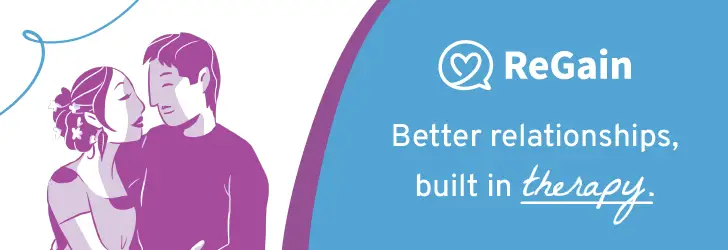As a BetterHelp affiliate, we receive compensation from BetterHelp if you purchase products or services through the links provided
It’s been a year since you discovered your partner’s infidelity, and the emotional roller coaster has begun to level out. The initial shock has worn off, and a newfound sense of clarity has allowed you to better navigate through this trying period in your relationship. For some, moving forward means working together to rebuild trust, while for others, it signifies the end of a partnership.
One thing is certain: the journey after infidelity is complex, and marked by various stages of recovery, self-discovery, and growth. Whether you’ve chosen to stay together or move on, it’s essential to examine the communication breakdowns and emotional repercussions that led to the unfaithful act. This process will not only help provide necessary closure, but will also strengthen your ability to maintain healthier relationships in the future.
Key Takeaways
- The one-year mark post-infidelity can provide valuable insights and clearer perspectives.
- Addressing the emotional aftermath and improving communication is crucial to healing and growth.
- Exploring therapeutic interventions can help restore trust in oneself and future relationships.
 Recognizing Infidelity
Recognizing Infidelity
Consequences of Cheating
Cheating can have a devastating impact on both parties in a relationship. It can lead to loss of trust, feelings of betrayal, and deep emotional pain. It might also cause a decrease in self-esteem for the person who was cheated on, as well as guilt and shame for the unfaithful partner. In some cases, infidelity can even result in the dissolution of the relationship.
Discovery of the Affair
Discovering that your partner has been unfaithful can be shocking and overwhelming. You may feel mixed emotions like anger, hurt, and disbelief. Contacting friends, family, or professionals for support and guidance during this challenging time is crucial. Some people might confront their partners directly, while others may seek evidence before discussing the issue.
Characteristics of an Unfaithful Partner
While no one-size-fits-all description of an unfaithful partner exists, some common traits and behaviors might indicate infidelity. Keep an eye out for the following signs:
- Increased secrecy: Your partner might become more protective of their phone or computer, change passwords, or delete messages and communication logs.
- Shifts in emotional intimacy: They may become distant, disinterested, or even overly affectionate to compensate for their infidelity.
- Sudden changes in routine: If your partner starts working late, taking unexplained trips, or spending more time away from home, it could be a red flag.
- Defensiveness when questioned: An unfaithful partner may become defensive or angry about their actions or whereabouts.
Remember that these signs are not definitive proof of infidelity but potential indicators. It’s essential to approach the situation openly and avoid making emotional assumptions.
Emotional Repercussions

Dealing With Anger and Depression
You might grapple with intense emotions such as anger and depression after a year since infidelity. It’s important to acknowledge these feelings and allow yourself to experience them. You may feel rage at your partner, yourself, or the situation. Don’t suppress your anger; find healthy ways to express it, like talking to a trusted friend or therapist.
Depression could also take hold as you navigate the aftermath of infidelity. Feelings of hopelessness, irritability, and exhaustion may be prevalent. Be proactive in seeking support and treatment to help you manage your symptoms and regain emotional stability.
Understanding Betrayal and Heartache
The sense of betrayal and heartache that comes with infidelity can be overwhelming. The foundation of trust you had with your partner may feel shattered, which could lead to persistent heartache. As you process these feelings, try to put yourself in your partner’s shoes and consider their perspective. Understanding their actions, emotions, and motivations can be beneficial in helping you manage your own painful emotions.
Maintain open lines of communication and discuss your feelings with your partner to foster understanding and healing. This can help in rebuilding trust and working towards recovery in your relationship.
Coping With Post-Traumatic Stress
Post-traumatic stress can stem from the pain and shock of infidelity. It may show up as flashbacks, anxiety, or difficulty concentrating. Acknowledge that these experiences are a normal part of your emotional healing and take steps to address them.
Consider seeking support from professionals, such as a therapist experienced in trauma recovery, or joining support groups that focus on dealing with infidelity. You might also benefit from practicing relaxation techniques, like deep breathing or mindfulness exercises, to alleviate stress and anxiety.
Remember, you’re not alone in your journey of healing and recovering from the emotional repercussions of infidelity. It’s a process that takes time, but you can overcome its challenges with the right support, understanding, and coping strategies.
Taking Responsibility
Admit to the Affair
First and foremost, you need to admit to the affair. It might not be easy, but you and your partner must acknowledge and address what happened. Honesty is the foundation for rebuilding trust. Start by openly discussing the reasons behind the infidelity and express your feelings. This can include feelings of guilt, fear, or confusion. Your partner deserves to know the truth; hiding it will only prolong healing.
Display of Remorse
Showing genuine remorse is crucial for moving forward. This means acknowledging the pain and hurt you caused your partner and taking ownership of your actions. Express your remorse by empathizing with your partner’s feelings, listening to their thoughts and concerns, and validating their emotions. A heartfelt apology can demonstrate your commitment to change and make amends for your past actions. Remember, your actions should align with your words; consistent efforts to show remorse will help rebuild trust.
Proactive Actions
Taking proactive steps to rebuild your relationship is essential. This includes setting boundaries and establishing new expectations for your relationship. Be transparent with your partner about your whereabouts and activities, and actively work to rebuild trust. Consider attending couples therapy or relationship courses to facilitate open communication and develop coping strategies.
In addition, identify underlying issues that may have contributed to the infidelity, such as unresolved conflicts, emotional distance, or personal struggles. Address these issues openly and work together with your partner to find solutions. Doing so demonstrates your commitment to creating a stronger and healthier relationship moving forward. Remember, healing from infidelity takes time and consistent effort, but taking responsibility is the first step.
Communication Breakdown and Improvement
Identifying Communication Patterns
To heal after infidelity, it’s crucial to identify and understand the communication patterns, both positive and negative, that existed in your relationship before the incident. By reflecting on how you and your partner used to communicate, you can pinpoint areas that need improvement. Take note of instances where important information was withheld or not properly expressed. Discuss these patterns with your partner to gain insight into their thoughts and feelings.
Open and Honest Dialogue
Establishing open and honest dialogue is the foundation for mending a relationship after infidelity. Commit to sharing your thoughts, emotions, and concerns with your partner instead of keeping them bottled up or hidden. Remember that discussions should be respectful and focused on solving issues rather than assigning blame or making accusations. Be an active listener, and take a moment to consider their perspective. This renewed dedication to free-flowing conversation will contribute to rebuilding trust in your relationship.
Transparency in the Relationship
Trust plays a vital role in repairing the bond between you and your partner. Transparency is essential in achieving this trust. Being open about your actions, decisions, and whereabouts will help reassure your partner and demonstrate your commitment to rebuilding the relationship. Similarly, you should expect the same level of openness from them. By fostering a transparent environment, you’ll strengthen the connection you share and create a healthier foundation for your relationship moving forward.
 Therapeutic Interventions
Therapeutic Interventions
Choosing a Therapist
When seeking therapy after infidelity, it’s important to find a therapist experienced in dealing with these issues. Look for a licensed professional specializing in couples therapy, trauma, or infidelity recovery. You can ask for recommendations from friends or family or search online for reputable therapists. Ensure that both you and your partner feel comfortable with the therapist you choose, as building trust and rapport is essential to the success of the therapy process.
Role of Professional Support
Professional support plays a pivotal role in the healing process after infidelity. A therapist can guide you and your partner through difficult conversations and emotions, helping you understand and process the events that led to the infidelity. They can also introduce you to healthy communication strategies and techniques for rebuilding trust and boundaries in your relationship. Therapy sessions often provide a safe, non-judgmental space for both parties to express their feelings and openly work through their grief.
 Move beyond pain and confusion together.
Move beyond pain and confusion together.
Effectiveness of Therapy
The effectiveness of therapy after infidelity is highly dependent on several factors, such as the willingness of both partners to engage in the process, the severity of the breach of trust, and the specific needs of your relationship. Some couples find that therapy helps them rebuild trust, improve communication, and gain a deeper understanding of themselves and their partner, ultimately leading to a stronger connection. Remember that progress may be slow, and each person’s journey through therapy is unique. Be patient with yourself and your partner, and stay open to the possibility of growth and healing.

Restoring Trust
Rebuilding Trust
Rebuilding trust after infidelity is crucial for moving forward in a relationship. First, you need to be honest with your partner and communicate openly. Share how you feel and listen to your partner’s feelings as well. Ensure you are consistent in your actions, showing you are committed to change. This process will take time, so be patient and prepared to accept responsibility for your actions. Your actions will speak louder than words, so be true to your promises.
Rebuilding Emotional Connection
Restoring emotional connection after infidelity can be challenging, but it is essential. To reconnect with your partner, engage in meaningful conversations, and express support for one another. Show empathy by trying to understand your partner’s feelings and acknowledge the hurt caused by the betrayal.
Take on joint activities you enjoy, such as walking or workshops, to strengthen your bond. Additionally, recognize and appreciate the positive aspects of your relationship. Don’t forget to have regular check-ins with your partner, discussing your progress and adjusting your approach as necessary.
Regaining Intimacy
As you work on rebuilding trust and emotional connection, intimacy will gradually return to your relationship. Be patient and understanding with your partner’s needs and comfort levels. Keep communication open regarding your desires and boundaries, ensuring both parties feel secure and respected.
Try setting aside regular time for each other to focus on physical and emotional intimacy. This could include activities like cuddling, holding hands, or spending quality time together, taking care to avoid any triggers that may cause discomfort.
As you progress, celebrate the milestones you reach together on your journey to restore trust, emotional connection, and intimacy. Your relationship may have changed, but growing and healing together is possible, forging a stronger and more resilient bond.
 Children and Infidelity
Children and Infidelity
Explaining Infidelity to Children
When dealing with the aftermath of infidelity, it’s important to be open and honest with your children. If they’re old enough to understand the situation, take the time to sit down with them and explain what has happened in age-appropriate language. You might say, “Sometimes, people in relationships make mistakes and hurt each other’s feelings. Dad/Mom and I are working on fixing our relationship because we care about each other and our family.”
Ensure your children are not to blame for the infidelity, and remind them that both parents love them. Creating a safe space for your children to ask questions and express their emotions is essential, allowing them to cope healthily.
Children’s Role in Healing Process
As you and your partner work towards healing and rebuilding your relationship, your children can play a role in the healing process. Encourage them to share their feelings and provide a loving, supportive environment. Additionally, you can involve your children in family-centered activities that promote bonding and emotional connection. This might include:
- Family dinners and discussions
- Game nights
- Outdoor activities such as hiking or biking
Helping your child feel secure and emotionally supported is vital during this challenging period. By maintaining open communication, fostering positive family experiences, and allowing your children to participate in the healing process, you can create a nurturing environment that promotes healing in the aftermath of infidelity.

Healing and Moving Forward
Role of Forgiveness
Forgiving is a crucial step in healing after infidelity. It might seem impossible, but resisting resentment is essential to move forward. Understand that forgiveness isn’t the same as forgetting or excusing the betrayal. It is, instead, a conscious choice to release your pain and anger, paving the way for healing. It’s vital for both you and your partner to work on rebuilding trust and have open communication in this phase.
Learning and Growing From the Experience
After experiencing infidelity, it’s necessary to learn and grow. Reflect on your emotions about the situation, and take this opportunity to grow stronger. It might reveal underlying issues in your relationship that need addressing. Working through these issues can strengthen your bond and prevent future indiscretions. Remember that every challenge can be an opportunity for growth if approached with the right mindset.
Maintaining a Healthy Relationship
Keeping your relationship healthy following infidelity requires continuous effort from both partners. Key elements to achieve this include:
- Open and honest communication
- Setting boundaries and respecting them
- Spending quality time together
- Practicing self-care and attending to individual needs
Fostering these aspects contributes to a happier, stable relationship, paving the way for healing and a brighter future together.
Preventing Relapse
Recognizing Warning Signs
Awareness of the warning signs that may signal a potential relapse is essential. Watch for changes in behavior or emotions, such as increased secrecy or defensiveness. Don’t ignore red flags or gut feelings; address them openly and clearly. By staying alert, you can address these signs early on and work together to prevent relapse.
 Establishing Boundaries
Establishing Boundaries
Clear boundaries are essential to prevent relapse after infidelity. Both partners should discuss their needs and expectations and define the limits of acceptable behavior. Boundaries can include anything from communication with past partners to transparency regarding social media accounts. Create a map of these boundaries and update it as needed, always ensuring you and your partner are on the same page.
- Emotional boundaries: Be honest about your emotional needs and expectations, letting your partner know what is and isn’t acceptable.
- Physical boundaries: Clearly define what physical actions are off-limits within your relationship.
- Digital boundaries: Agree upon the level of transparency and privacy regarding your digital lives, such as access to devices or shared social media passwords.
Maintaining Commitment
To truly move forward after infidelity, you both must be committed to rebuilding trust and fostering a healthy relationship. This may include attending the couple’s therapy, discussing lingering concerns, and actively supporting one another’s growth and healing. Commitment also requires consistency—making it a conscious, daily decision to prioritize and nurture your relationship.
Here are a few tips to help maintain your commitment:
- Regular check-ins: Schedule time for regular discussions about how you both are feeling and to address any concerns or issues.
- Reinforce trust-building actions: Be transparent with your actions and intentions, sharing information openly to help rebuild trust.
- Express love and appreciation: Don’t forget to express your love and gratitude for each other’s efforts and for the progress you’re making together.
 Sailing Towards Healing: Recognizing When Therapy is Needed
Sailing Towards Healing: Recognizing When Therapy is Needed
After the turbulent storm of infidelity, it’s not always easy to see the path to recovery. Therapy can be the lighthouse guiding you toward healing, but recognizing when professional help is necessary is crucial. Here’s how you know it’s time to embark on the therapeutic journey:
- Persistent Emotional Turmoil: If anger, sadness, or confusion continue to dominate your emotions long after the initial discovery of infidelity, it may be time to seek professional help. These lingering feelings can prevent you from moving forward and healing.
- Communication Breakdown: If conversations between you and your partner constantly lead to arguments or total silence, a therapist can facilitate productive dialogues, helping you express feelings and concerns more effectively.
- Trust Issues: Rebuilding trust after betrayal is a complex process. Professional intervention may be required to rebuild that essential foundation if you obsessively question your partner’s honesty or whereabouts.
- Self-Esteem Suffers: Infidelity often leaves the betrayed feeling inadequate or unworthy. A mental health professional can help rebuild self-esteem, guiding you to recognize your worth.
- Impact on Other Relationships: If the fallout from infidelity affects your relationships with friends or family, therapy can be an essential tool in mending those bonds.
- Consideration of Separation or Divorce: If you’re contemplating ending the relationship, professional guidance can provide a safe space to explore these feelings and make an informed decision.
- Signs of Depression or Anxiety: If you notice signs of mental health issues like persistent sadness, lack of interest in activities you once enjoyed, or constant worry, professional intervention is essential.
By recognizing these signs and taking action, therapy can guide you through the aftermath of infidelity, helping you discover new horizons, heal old wounds, and forge a stronger, healthier path forward. Whether it’s individual counseling, couples therapy, or support groups, seeking professional help at the right time can be a transformative experience, steering your life toward a brighter future.
 Charting Progress: Goals and Milestones in the Therapy Journey
Charting Progress: Goals and Milestones in the Therapy Journey
Navigating the turbulent seas of infidelity requires a clear set of goals and an awareness of progress. Therapy isn’t just about dwelling on the past; it’s about setting a course for a brighter future. Here’s what to focus on and how to recognize when you’re making headway:
Goals in Therapy:
- Understanding the Infidelity: Unraveling the ‘why’ behind the betrayal helps prevent future occurrences and fosters deeper understanding.
- Rebuilding Trust: Establishing trust requires concrete actions and commitments, and therapy can outline the steps necessary to rebuild this foundation.
- Improving Communication: Enhancing how you talk and listen to each other fosters a healthier relationship, making room for empathy and understanding.
- Strengthening Emotional Connection: Focusing on rekindling intimacy and emotional connection can bring joy back into the relationship.
- Personal Growth and Healing: Individual sessions can be focused on self-improvement and personal healing, addressing issues like self-esteem, anxiety, or depression.
- Developing Coping Strategies: Learn how to manage emotions and reactions, developing resilience against future challenges.
Signs of Progress:
- Easier Conversations: Finding that communication flows more naturally, without leading to conflict, signifies progress.
- Renewed Trust: Feeling more secure and less suspicious, noticing a tangible effort from your partner is a positive step towards rebuilding trust.
- Emotional Stability: Feeling more balanced and less overwhelmed by emotions signals that healing is occurring.
- Positive Changes in Behavior: Recognizing constructive behavioral changes in yourself or your partner shows that therapy’s impact is taking root.
- Enhanced Intimacy: Feeling closer and more connected to your partner is a sign of strengthening the emotional bond.
- Satisfaction with Individual Growth: If you notice positive changes in yourself, like increased self-esteem or decreased anxiety, it reflects therapeutic success.
- Feeling Hopeful About the Future: Hope is a strong indicator that healing is happening and you’re on the right track.
The therapy journey after infidelity can be likened to navigating a ship through uncharted waters. With well-defined goals, a watchful eye for signs of progress, and a seasoned therapist as your guide, you can find your way to a renewed and vibrant relationship or a healthy new beginning. This voyage isn’t just about surviving the storm; it’s about thriving in the calm that follows, steering your life toward a fulfilling and joyful destination.
Frequently Asked Questions
How long does the healing process take after infidelity?
The healing process after infidelity varies for each person and relationship. It may take months or even years to recover fully. Factors such as the nature of the affair, the level of trust, and the willingness to forgive and work through the issues can impact the recovery time. Remember, healing is a journey and you should give yourself and your partner enough time and space to recover.
How to cope with obsessive thoughts post-infidelity?
Coping with obsessive thoughts after infidelity can be challenging but essential for mental and emotional well-being. To help yourself, try journaling about your feelings and thoughts, focusing on positive affirmations, and practicing mindfulness techniques like deep breathing and meditation. Set healthy boundaries around conversations and avoid constantly reliving hurtful memories. Seeking professional help from a therapist can also provide valuable guidance and strategies.
Does the pain from being cheated on ever disappear?
While the pain from being cheated on may never entirely disappear, it usually lessens over time as you heal and process your emotions. As you work through the recovery process, the hurt may transform into understanding and forgiveness. However, it’s important not to rush or suppress your feelings, as this may hinder your healing process. Allow yourself the time you need to grieve and gradually move forward.
What are the stages of recovering from betrayal?
The stages of recovering from betrayal are similar to the stages of grief. They include shock and denial, anger and resentment, bargaining, depression, acceptance, and moving on. These stages aren’t linear, and you may find yourself moving back and forth between them. Recognizing these stages can help you gain insight into your emotions and empower you to work through them healthily.
Can a relationship regain emotional closeness after infidelity?
Yes, a relationship can regain emotional closeness after infidelity, but both partners require time, effort, and commitment. Open communication, rebuilding trust, and seeking counseling or therapy can all contribute to repairing the bond. Re-establishing a strong foundation of trust, honesty, and mutual respect is key to regaining and maintaining emotional closeness in a relationship.
How do guilt and anxiety manifest after cheating?
Guilt and anxiety after cheating can manifest in various ways, such as feelings of shame, constant worrying about getting caught, difficulty concentrating, and even physical symptoms like headaches or stomachaches. The cheating partner may benefit from seeking professional help and working on self-forgiveness and personal growth to alleviate these feelings. Open communication and honesty with your partner and seeking therapy or counseling can be instrumental in overcoming guilt and anxiety induced by infidelity.

Navigating Stormy Seas: A Journey Through Mental Health, Narcissism, and the Legal Labyrinth
I’m Jacob Maslow, a seasoned traveler through the unpredictable landscapes of mental health and complex relationships. My journey has been marked by personal challenges, growth, and a steadfast commitment to help others on similar paths.
Living life with a focus on mental wellness, I manage my mental health through medication like Lexapro and remain a therapy veteran. These tools help me clear my mind during my daily long walks, reflecting on my progress and challenges.
In my complex relationship with an ex-partner, marked by her severe narcissism and relentless pursuit of affairs with community leaders, I’ve struggled with alienation from my kids and ongoing court battles for shared custody. This experience has driven my passion for writing articles that shed light on mental health, narcissism, and how people can triumph over these obstacles.
I also run a legal site where I strive to be a guiding beacon for others caught in the whirlpool of non-compliance with court orders and the weaponization of children. Despite the storms, I firmly believe anyone can find their way to safe harbors and that my words can be a compass for those navigating these turbulent waters.
- Stress Management: What is the Relationship Between Stress and Addiction? - June 28, 2024
- Exploring Techniques to Maintain a Healthy Lifestyle without Drugs - May 28, 2024
- How Acupuncture Helps Treat Chronic Fatigue Syndrome - May 28, 2024
This site contains affiliate links to products. We will receive a commission for purchases made through these links.


 Recognizing Infidelity
Recognizing Infidelity Therapeutic Interventions
Therapeutic Interventions Children and Infidelity
Children and Infidelity Establishing Boundaries
Establishing Boundaries Sailing Towards Healing: Recognizing When Therapy is Needed
Sailing Towards Healing: Recognizing When Therapy is Needed Charting Progress: Goals and Milestones in the Therapy Journey
Charting Progress: Goals and Milestones in the Therapy Journey


